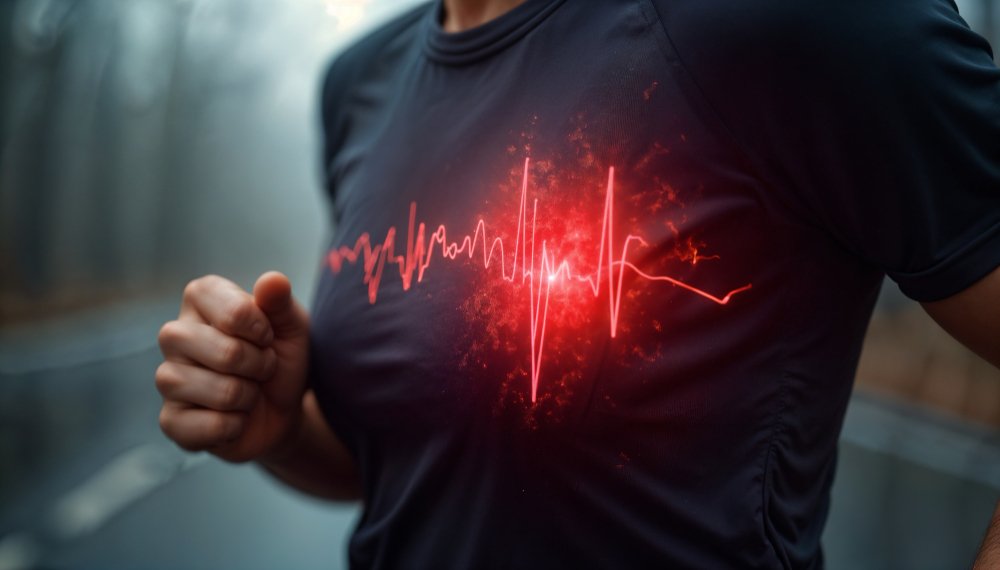
Causes of Palpitations and 20 Effective Remedies for Relief:
Palpitations refer to the sensation of your heart beating irregularly, quickly, or strongly. They may occur in the chest, throat, or neck, and can be caused by a range of factors. While palpitations are usually harmless, they can be unsettling and sometimes indicate an underlying health issue.
Common Causes of Palpitations:
- Stress and Anxiety: Emotional stress or anxiety can trigger palpitations due to the release of stress hormones like adrenaline.
- Caffeine: Excessive consumption of caffeine (from coffee, tea, energy drinks, or chocolate) can overstimulate the heart.
- Dehydration: Not drinking enough water can lead to imbalanced electrolytes, which are essential for normal heart rhythm.
- Physical Exertion: Intense exercise or physical activity can cause temporary palpitations due to increased heart rate.
- Medications: Certain medications, like decongestants, asthma inhalers, or stimulants, can cause palpitations.
- Nicotine and Alcohol: Smoking or drinking alcohol excessively can disrupt heart function and cause palpitations.
- Hormonal Changes: Hormonal shifts, especially during pregnancy, menopause, or menstruation, can trigger palpitations.
- Low Blood Sugar: If you haven’t eaten for a while, low blood sugar can cause palpitations, shakiness, and sweating.
- Thyroid Issues: Hyperthyroidism (overactive thyroid) can lead to palpitations due to increased metabolism.
- Anemia: Low red blood cell count or hemoglobin can make the heart work harder, leading to palpitations.
- Heart Conditions: While most palpitations are harmless, they can sometimes be a sign of arrhythmia, atrial fibrillation, or other heart conditions.
20 Remedies to Get Rid of Palpitations:
Immediate Remedies:
- Deep Breathing Exercises:
- Practice slow, deep breathing to calm your nervous system. Breathe in deeply through your nose, hold for a few seconds, then exhale slowly through your mouth.
- Vagal Maneuvers:
- These techniques, such as the Valsalva maneuver (holding your nose, closing your mouth, and exhaling forcefully), stimulate the vagus nerve and can help normalize heart rhythm.
- Drink Water:
- Dehydration can cause palpitations. Drink a glass of water to help restore hydration and balance electrolytes.
- Relaxation Techniques:
- Try progressive muscle relaxation, guided imagery, or meditation to reduce stress and anxiety, which can trigger palpitations.
- Splash Cold Water on Your Face:
- The shock of cold water can stimulate the vagus nerve, helping to regulate your heart rhythm.

Dietary and Lifestyle Changes:
- Cut Back on Caffeine:
- Reduce your intake of caffeinated beverages like coffee, energy drinks, and tea to avoid overstimulation of the heart.
- Limit Alcohol and Nicotine:
- Avoid excessive alcohol and quit smoking to prevent palpitations caused by these substances.
- Eat Regular Meals:
- Low blood sugar can lead to palpitations. Eating balanced meals with healthy carbs, proteins, and fats can stabilize blood sugar levels.
- Increase Magnesium Intake:
- Magnesium plays a key role in heart health. Include magnesium-rich foods like spinach, nuts, seeds, and whole grains in your diet. Alternatively, you can take magnesium supplements if needed.
- Get Enough Potassium:
- Potassium helps maintain normal heart function. Foods like bananas, avocados, sweet potatoes, and leafy greens are rich in potassium.
- Stay Hydrated:
- Drink enough water throughout the day to maintain electrolyte balance and prevent dehydration-related palpitations.
- Limit Sugar Intake:
- High sugar levels can cause spikes in blood sugar, leading to palpitations. Opt for balanced meals and snacks with complex carbs, proteins, and healthy fats.
Long-Term Solutions:
- Exercise Regularly:
- Regular aerobic exercise, like walking, swimming, or biking, can strengthen your heart and improve circulation, reducing the likelihood of palpitations.
- Practice Yoga:
- Yoga combines physical exercise, deep breathing, and mindfulness, which can help reduce stress and anxiety while improving heart health.
- Address Anxiety or Stress:
- Palpitations are commonly linked to stress and anxiety. Consider counseling, cognitive-behavioral therapy (CBT), or mindfulness-based stress reduction to manage stress better.
- Maintain a Healthy Weight:
- Being overweight can increase your risk of heart problems and palpitations. Aim to maintain a healthy weight through a balanced diet and regular exercise.
- Get Enough Sleep:
- Lack of sleep or poor-quality sleep can increase stress hormones, leading to palpitations. Aim for 7-8 hours of restful sleep per night.
- Monitor and Manage Thyroid Health:
- Thyroid imbalances can cause palpitations. Regularly check your thyroid levels if you’re experiencing symptoms of hyperthyroidism.
- Take Omega-3 Supplements:
- Omega-3 fatty acids are heart-healthy and may reduce the frequency of palpitations. Eat fatty fish like salmon, or take fish oil supplements.
- Monitor Heart Health:
- Keep track of your heart rate, blood pressure, and cholesterol levels. Regular check-ups with your healthcare provider can help detect and manage any heart-related issues.
When to See a Doctor:
- If your palpitations last for a long time, are very frequent, or are accompanied by other symptoms like chest pain, dizziness, fainting, or shortness of breath, consult a healthcare provider. These could be signs of a more serious underlying condition, such as a heart arrhythmia.
Conclusion:
Palpitations can be caused by various factors ranging from stress and dehydration to more serious conditions like thyroid imbalances or heart issues. By addressing potential triggers and following these remedies, you can reduce or prevent the occurrence of palpitations. Always consult a doctor if you’re concerned about frequent or severe palpitations.




